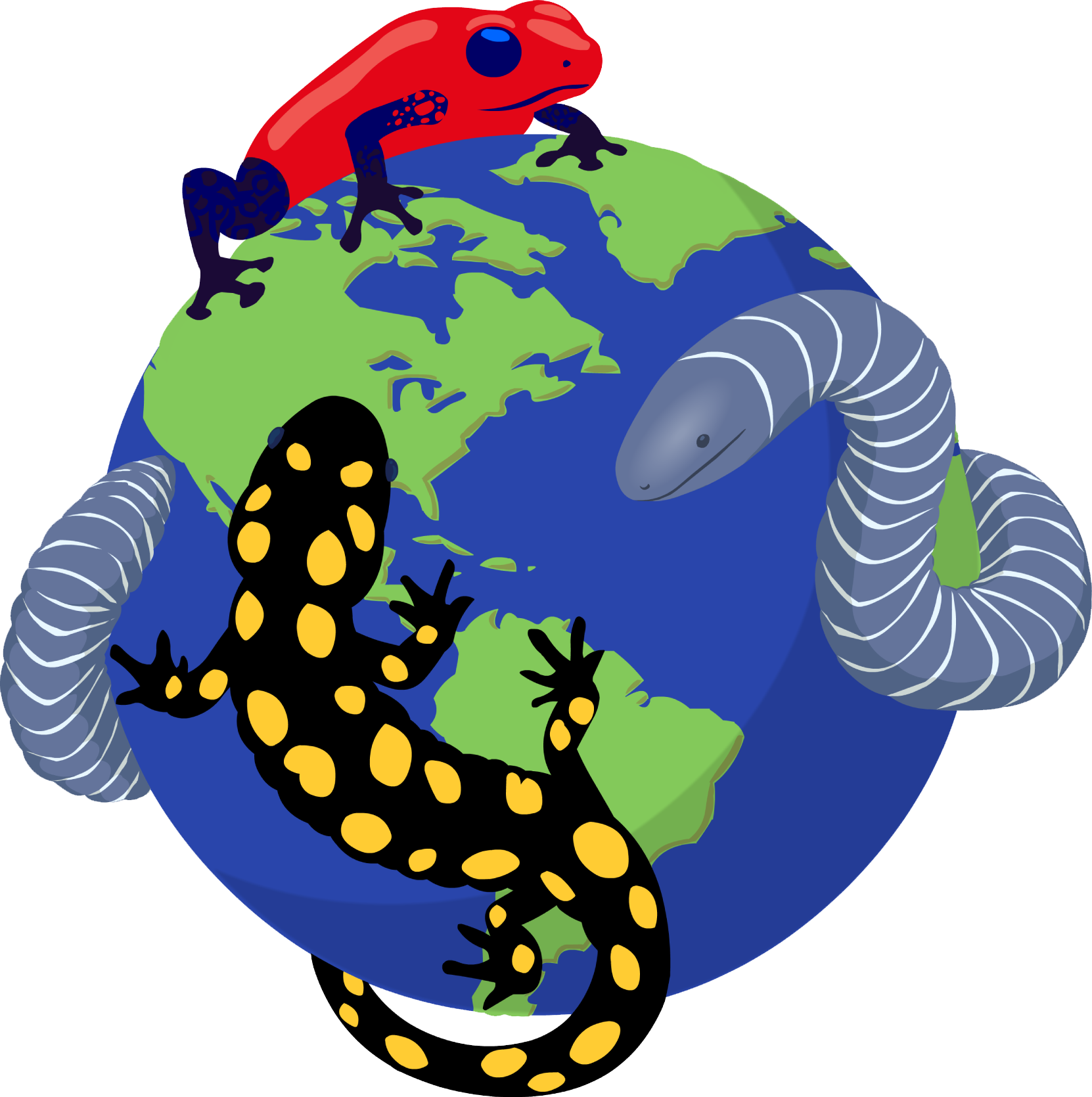|
Description
B. torrenticola has a body that is robust and a canthus that is sharp and slightly concave. The snout to eye distance is longer in females than in males, and the interorbital is only slightly concave.The tympanum is indistinct. The limbs are long, especially distally, and the tips of the fingers and toes are blunt. The webbing is not well developed. The males have a middle subarticular tubercle on the 4th toe. Inner and outer metatarsal tubercles are oval. The tibio-tarsal articulation reaches the middle of the parotoid gland, and the skin on the back of these toads are covered with warts except around the head. However, the skin is nearly smooth in breeding males. There is a row of warts dorsolaterally behind the parotoid gland. The parotoid gland is short. The mean snout to vent length for males is 95 mm (range 70-121)and for females, 121 mm (range 88-168). There is no vocal sac or vocal opening. The nuptial pads in males are black on the first three fingers. Distribution and Habitat
Country distribution from AmphibiaWeb's database: Japan
B. torrenticola is endemic to Japan. It is found in the area between the Western Chubu District and the Kinki District of central Honshu, Japan. Life History, Abundance, Activity, and Special Behaviors
This species inhabits mountainous regions, where it can occasionally be found on trees. It breeds from April to May in streams. Metamorphosis takes place as early as August. It feeds on terrestrial animals such as earthworms, centipedes, Coleoptera, Orthoptera, and crabs. It is often found to be sympatric with B. japonicus. However, it breeds in lotic water, while japonicus breeds in lentic water.There are anywhere between 2,500-4,000 eggs laid in a string-like mass. The eggs are between 2.4-2.7 mm in diameter. The matured larva are small, 35 mm in total length. SVL at metamorphosis 8-11 mm.The mating call is not heard on land. Release call with note lasting 0.07 sec at intervals of 0.2 sec. Dominant frequency 1.1 kHz, with frequency modulation and clear harmonics. Comments
Taxonomy
The type locality is Odaigahara, Nara Pref. B. torrenticola is sometimes regarded as a subspecies of B. japonicus because the artifical hybrids have been found to be fertile. But, isolation seems complete in the zone of sympatry. Karotype
Diploid chromosome (2n), with 6 large pairs and 5 small ones, making 22 chromosomes in total.
References
Maeda, N. and Matsui, M. (1990). Frogs and Toads of Japan, 2nd edition. Bun-Ichi Sogo Shuppan Co., Ltd., Tokyo, Japan.
Originally submitted by: Ambika Sopory (first posted 2000-09-14)
Edited by: Ambika Sopory (2001-12-03)Species Account Citation: AmphibiaWeb 2001 Bufo torrenticola: Japanese Stream Toad <https://amphibiaweb.org/species/296> University of California, Berkeley, CA, USA. Accessed Jun 6, 2025.
Feedback or comments about this page.
Citation: AmphibiaWeb. 2025. <https://amphibiaweb.org> University of California, Berkeley, CA, USA. Accessed 6 Jun 2025.
AmphibiaWeb's policy on data use.
|





 Map of Life
Map of Life